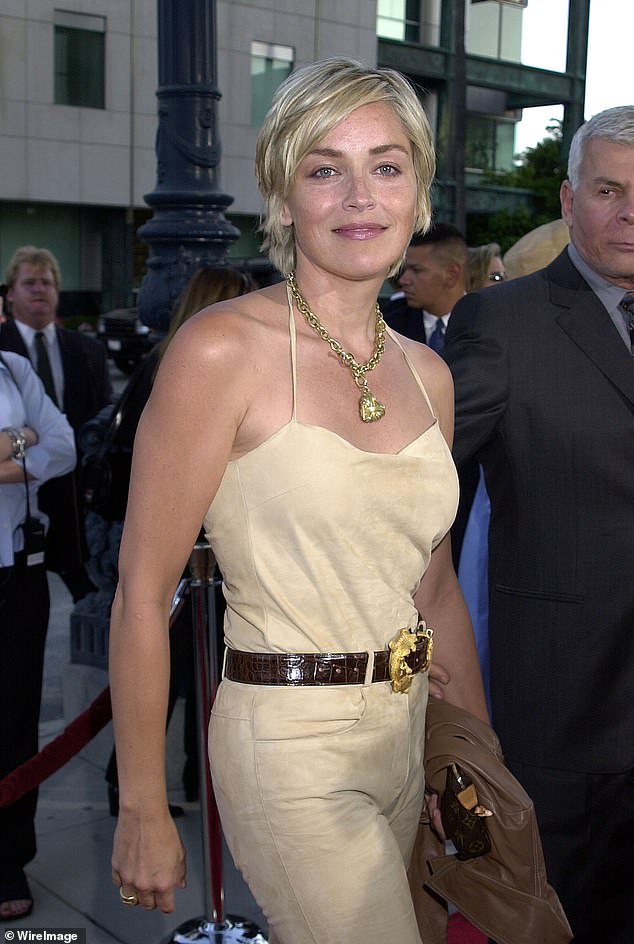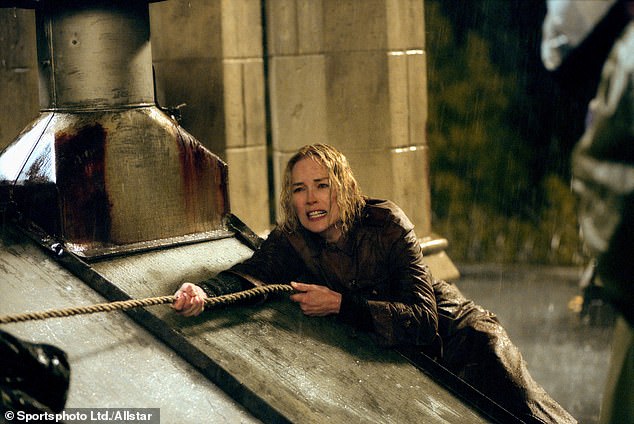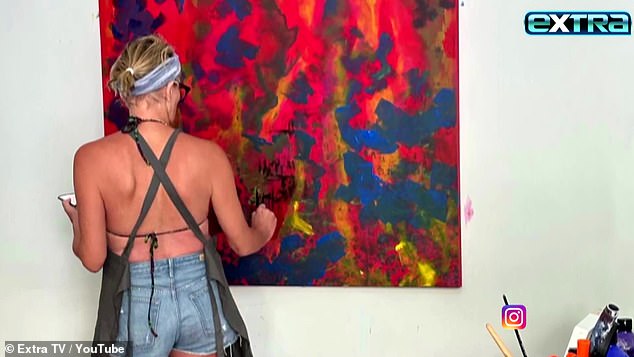Sharon Stone opens up about beating the odds and how doctors thought she was ‘faking’ a life-threatening stroke: ‘Women often just aren’t heard’
Sharon Stone said doctors thought she was ‘faking’ a life-threatening stroke.
In a new interview with British Vogue, the Oscar-nominated actress recalled the near-fatal stroke she suffered in 2001, and the doctors who she says initially misdiagnosed her medical emergency and sent her home almost untreated.
The Basic Instinct star explained the pain in her head as a “bolt of lightning,” moments before she was rushed to the hospital all those years ago.
“I remember waking up on a stretcher and asking the guy driving it where I was going, and he said, ‘brain surgery,'” the actress recalled. “A doctor, without my knowledge or consent, decided he needed to give me exploratory brain surgery and sent me to the operating room.”
She claims the medical staff didn’t take her description of her pain level seriously, and as a result they didn’t detect the brain bleed: “They missed it on the first angiogram and decided I was faking it,” Stone told the publication. .
Getting real: Sharon Stone, 65, revealed in a new interview with British Vogue that she suffered a brain hemorrhage in 2001 and doctors thought she was ‘faking it’
The bleeding left her with a nine-day cerebral hemorrhage and a 1% survival rate after surgery.
By the time Stone became fully aware of the doctors’ plan to perform exploratory brain surgery, she went out of her way to make it clear that she had not yet signed up for the surgery.
Looking back now, some twenty years later, Stone has a new perspective on the way patients are treated.
“What I learned through that experience is that women are often just not heard in a medical setting, especially if you don’t have a female doctor,” says the Meadville, Pennsylvania, native.
Coincidentally, Stone’s best friend was by her side at the hospital and was able to be her advocate, which ultimately led to her getting a second angiogram.
“My best friend talked them into giving me a second one and they discovered I had a bleed in my brain, my entire subarachnoid pool, and my vertebral artery had ruptured,” Stone explained, before adding, “I would would have died if they had sent me home.’
Studies have shown that the medical gaslighting Stone experience is becoming more common, according to the National Center for Biotechnology Information of the National Library of Medicine. And that the “numbers among women of color who experience this are staggering.”
With the correct diagnosis made, the Casino star was finally treated by esteemed neurosurgeon Dr. Michael Lawton, but her road to recovery was not without challenges.

Medical emergency: “I remember waking up on a stretcher and asking the little boy driving it where I was going, and he said, ‘brain surgery,'” the actress recalled. ‘A doctor, without my knowledge or consent, decided he needed to give me exploratory brain surgery and sent me to the operating room’; Stone is pictured in 2001, just before she suffered a brain hemorrhage
After losing significant weight during her hospital stay, Stone had difficulty walking and stuttered in her speech.
“I bled so badly in my subarachnoid pool (head, neck and spine) that the right side of my face fell, my left foot dragged heavily and I stuttered really badly,” she revealed.
As a result, Stone now takes daily medication for stuttering and severe brain seizures.
“The first few years I also got these weird knuckle-like knots that would pop up all over my head and it felt like I was being punched,” she admitted. ‘I can’t express how painful it all was.’
Earlier this month, Stone said People that her eyesight had also been affected and that she had suffered memory loss during the early stages of her recovery.
The toll the entire experience took would also manifest itself in experiencing long bouts of depression during her decade-long recovery.
Fast forward some 22 years, and Stone is only now feeling comfortable sharing her story, as she worried about the backlash she would receive both publicly and within the acting industry.
“I hid my disability and was afraid to go out and didn’t want people to know,” says Stone, who credits Michael J. Fox for encouraging her to share her experiences. “I just thought no one would accept me.”
With few exceptions, the Mosaic star claims that people in Hollywood have not supported her career in the wake of her health problems, and that she is not “often hired” because she is “disabled.”

Fallout: Stone says people in Hollywood have not supported her career in the wake of her health problems, and that she is not “hired often” because she is “disabled”; she is pictured at Cold Creek Manor, which is likely her first tole after her medical emergency

Second Calling: Stone has found a second calling with her blossoming painting career, along with her time on the board of the Barrow Neurological Foundation, which supports the medical institute where her brain surgeon Dr. Michael Lawton leads in Arizona
Stone has found some redemption by now serving on the board of the Barrow Neurological Foundation, which supports the medical institute where her brain surgeon, Dr. Michael Lawton leads in Arizona.
As part of her duties, she is the brains behind Neuro Night, a charity event held on Friday, October 27. All money raised goes directly to supporting Barrow’s scientific research into finding treatments for brain aneurysms, tumors and Parkinson’s disease. ‘
With no acting roles coming her way, Stone’s second calling includes a blossoming painting career, where she can scratch her creative itch at any time.
And now she moves forward in her life determined not to let her disability define her.
“I think a lot of people identify with their illness as ‘I am this thing,’ and it can’t be your identity,” she shared, before opening up about some of the losses she suffered. ‘In my case, so much was taken from me. I lost custody of my child, I lost my career and couldn’t work, I went through a divorce and was put through the ringer, I lost so much, and I could have allowed that to define me. But you have to stand up and say, ‘Okay, that happened, and now what? What am I made of?”
